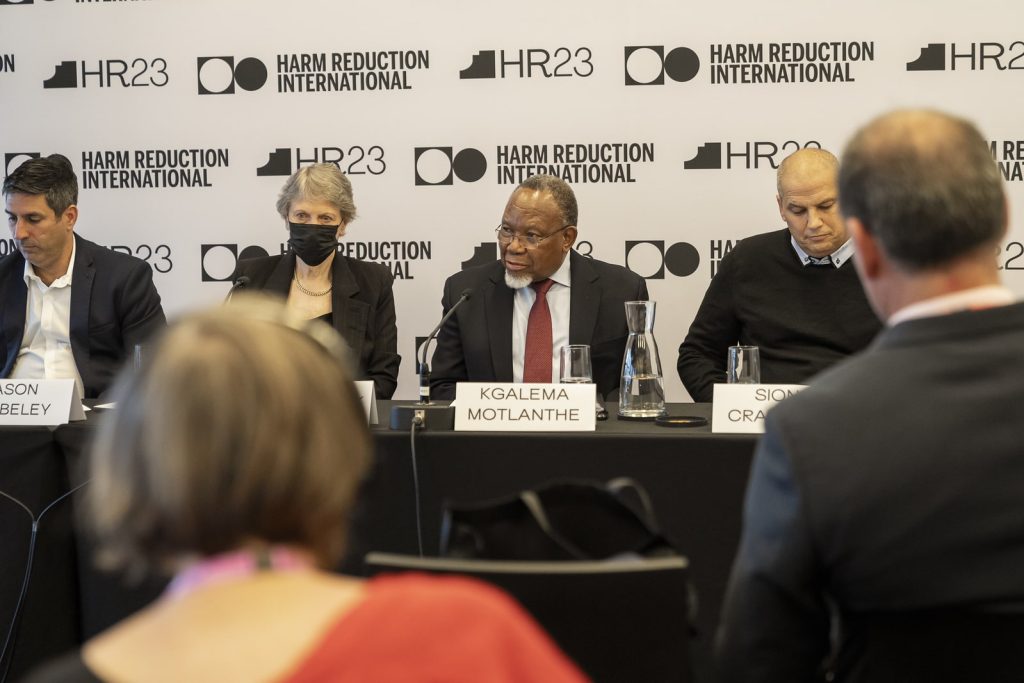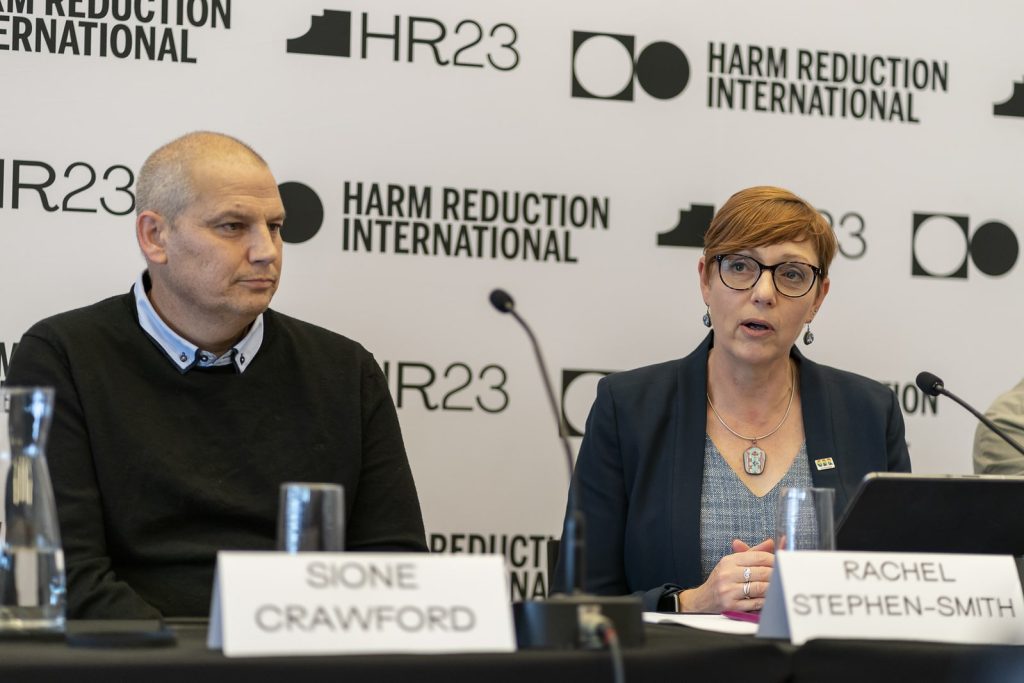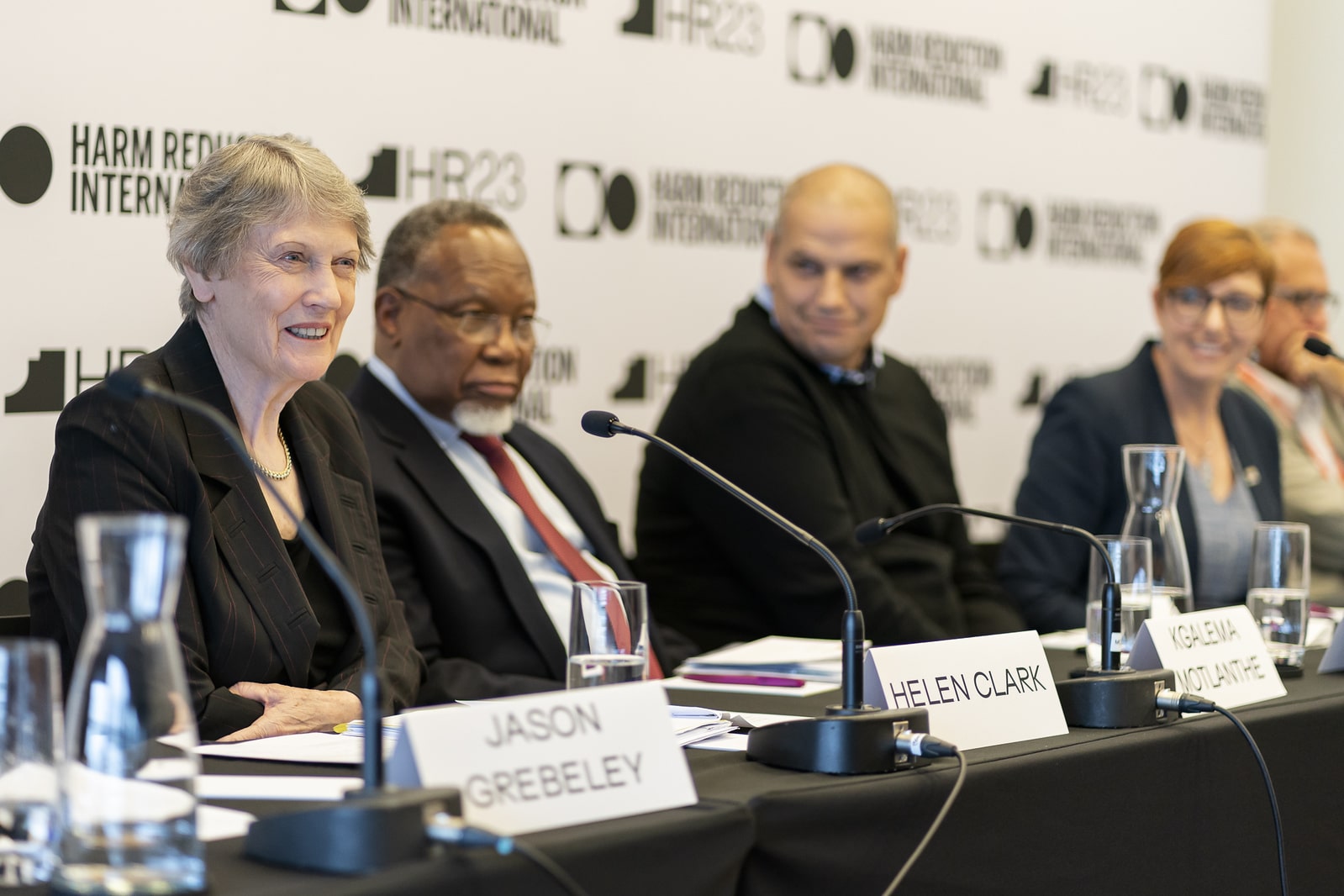MELBOURNE, April 17 – Former New Zealand Prime Minister Helen Clark has urged countries to decriminalise and legally regulate all narcotics, highlighting the “total failure” of the War on Drugs over the past six decades.
Clark, who is also the current chair of the Global Commission on Drug Policy (GCDP), cited the 2022 World Drug Report by the United Nations Office on Drugs and Crime that found the number of people using drugs globally rose by 26 per cent since 2010, with a projected rise of another 11 percentage points by 2030.
She said the global prohibitionist approach towards drugs for more than 60 years – since the United Nations’ Single Convention on Narcotic Drugs 1961 – has led to HIV and hepatitis C infections among people who inject drugs and excessive incarcerations of people who use drugs.
Clark also described the death penalty as a “disproportionate” sentence and “clearly illegal under international law” for drug offenders.
“So there are very, very serious consequences for human rights and health and wellbeing in the current international approach,” Clark told the official opening press conference of the 27th Harm Reduction International Conference (HR23) at Melbourne, Australia, yesterday.
“Human beings have been using substances for whatever reason they’ve used them for thousands of years. We’re not dealing with new issues here, but we’re dealing with totally inappropriate and wrong ways of tackling them.”
Clark said the GCDP – which includes former heads of state and government – aims to expose the harmful effects of drug control policies mandated by global drug conventions.
“We set out to call for an end to the criminalisation of drug use and possession and to call for the legal regulation of all drugs. That is our position. Governments should step up to the responsibility to regulate responsibly in this area.”
CodeBlue asked Clark if complete decriminalisation or legalisation of all drugs could inevitably lead to higher substance abuse and addiction that are very serious public health issues in themselves.
“With complete legalisation or decriminalisation, is there a fear that when governments do that, they’re sending a message to their people that drug use is completely permissible, when the role of the State really should be to protect society from harm?”
Clark responded by citing the Australian Capital Territory’s (ACT) decision to decriminalise small amounts of nine common types of illicit drugs – including amphetamine, cocaine, methamphetamine, MDMA, heroin, cannabis, psilocybin, and LSD – from October this year, after the Australian jurisdiction passed the legislation for decriminalisation a year prior in October 2022.
“The case, I think, is also reasonably clear that a drug like cannabis should be subjected to a form of regulation that’s probably similar to that for tobacco. By the way, tobacco is more dangerous and more deadly,” Clark said.
The former New Zealand prime minister cited the New Zealand model of a “tobacco plus” regulation that created a legal market for cannabis, but with plenty of restrictions such as limiting sales to dedicated sellers, which she described as “a fully legal market properly regulated for cannabis”.
Clark also cited Switzerland, the first country to legalise prescription heroin in 1994.
“We don’t see any evidence that the legal and policy reforms in these areas are leading to any blowout in use. People are using drugs regardless of the legal environment actually. The question is, are they using them safely or not? And because prohibition creates a very unsafe environment, we actually put people’s lives and wellbeing at risk,” she said.
“So focusing on conducive legal and policy reforms for harm reduction – everything’s got some potential for harm. Tobacco is very deadly. Alcohol has got huge harm potential – everything somewhere along the spectrum – but you need to regulate access too in line with that.”
Jason Grebely, the head of the Hepatitis C and Drug Use Group at Australia’s Kirby Institute, said criminalisation and incarceration for drug possession “actually puts people at risk of a range of harms”, citing increased risk of HIV and hepatitis C transmission in prisons.
“This is partly in relation to the lack of access to proven harm reduction interventions, such as needle and syringe programmes and opioid agonist treatment, and we know that these interventions reduce HIV and Hep C transmission,” Grebely told the HR23 official opening press conference.
“I just think that it’s really critical that we think about the fact that decriminalisation could actually play a major role in reducing a range of harms for people who inject drugs. And there’s mathematical modelling to show that this would be possible.”
Motlanthe: No Increase In Cannabis Use In South Africa After Legalisation

GCDP commissioner Kgalema Motlanthe, a former South African president, said South Africa’s Constitutional Court ruled in 2018 to legalise the cultivation of cannabis for personal use, allowing people to grow it in their backyards for recreational purposes.
“In the past, when it was prohibited, many many people, many many many poor people used to get arrested and convicted and incarcerated for possession of small quantities, but we haven’t seen the spread of experimentation and usage of cannabis since it was legalised,” he told the press conference.
“Instead, we see many products on the shelves in supermarkets of processed oils and all kinds of stuff of cannabis here. The point I’m making is that decriminalisation doesn’t necessarily lead to widespread usage here.”
Motlanthe also claimed that South Africa did not see an increase in health issues after legalising cannabis. “In fact, at some point, a private member’s bill was piloted through Parliament – the motivation was for people who have suffered from cancer, they could use it for medicinal value.”
Nelson Mandela University, however, said in a news release last month that the United Nations’ International Narcotics Control Board, in its Annual Report 2022, has warned that legalising the non-medical use of cannabis appeared to result in higher consumption and a lower perception of risk, especially among young people.
“It indicates that evidence from jurisdictions where cannabis has been legalised for recreational use, shows a higher consumption of cannabis and an increase in adverse health effects, psychotic disorders, and a negative impact on road safety,” said the South African university.
ACT Is First Australian Jurisdiction To Decriminalise Narcotics For Personal Use

ACT Health Minister Rachel Stephen-Smith told the press conference that the decriminalisation of nine types of illicit drugs in the ACT meant that people found with small amounts of these narcotics for personal use would be cautioned, given an AU$100 fine, or referred to a drug diversion programme.
This “Australia first” reform, she said, has been supported by extensive consultations with policy experts, government officials, the police, as well as “people with lived experiences”.
“The reform is intended to reduce stigma and fear to people who are using drugs to access health services, really diverting people to health supports rather than the criminal justice system, genuinely treating drug use as a health issue rather than a criminal one,” Stephen-Smith said.
The ACT also has trialled drug-checking services, including festival-based ones at two music festivals in 2018 and 2019, besides a six-month pilot starting July 2022 of Australia’s first fixed-site health and drug-checking service, called CanTEST, run by Directions Health Service, a specialist drug treatment service funded primarily by ACT Health and the Australian Government Department of Health.
CanTEST, which has been extended to August this year following positive findings from an interim independent evaluation, provides free on-the-spot chemical analysis of drugs and pills for people intending to use these for personal use, so as to inform service users if there are any unknown or potentially dangerous substances in illicit drugs.
The drop-in centre also provides general health, sexual health, and mental health advice, said the ACT health minister.
“From a policing perspective, that was really important – that they couldn’t form a reasonable suspicion that someone was going to this service solely because they had [drugs] in their possession, and that there was a reasonable expectation that they may be accessing other health services. So it’s also co-located in a building with other health services.”
Canberra Liberals have reportedly claimed that the ACT’s “radical reform” in decriminalising small amounts of illicit drugs would increase crime and “carnage on our roads”.
“It’s not going to change the number of people going into the criminal justice system, and it’s not going to fix the problem that we have now, which is not enough people being able to access treatment,” the party’s deputy leader Jeremy Hanson was quoted by ABC News as saying last October after passage of the bill.
“If you’re addicted to drugs – if you’re on meth or heroin – yes, we want to make sure there are treatments available, we want to make sure that support’s available, we want to of course have people diverted to those treatment spaces, but at the very core of it, we want to stop those drugs becoming available in the first place.”








